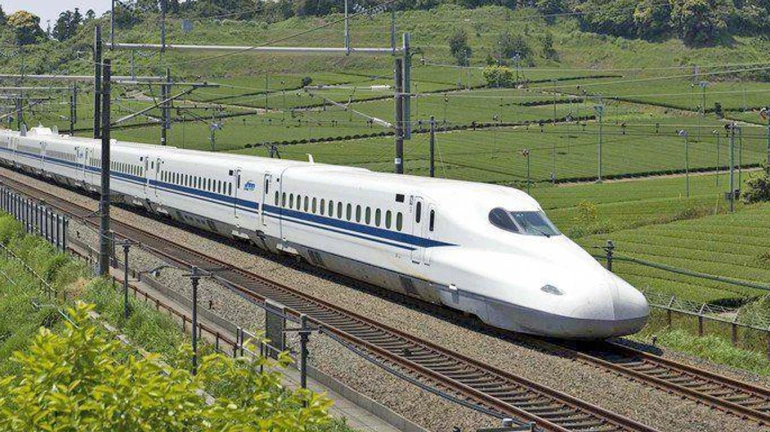
Significant progress has been reported in the Mumbai-Ahmedabad Bullet Train project, with 360 km of the corridor having been completed. The update was provided by Railway Minister Ashwini Vaishnaw, who stated that while the project had been advancing steadily, the Maharashtra section had encountered delays due to pending approvals during the tenure of the Uddhav Thackeray-led government. However, it was assured that construction work had now resumed at full speed, with major milestones being achieved.
It was emphasized that the Bullet Train was not merely a transportation initiative but a transformative infrastructure project designed to boost economic growth. Cities such as Mumbai, Thane, Vapi, Surat, Vadodara, Anand, and Ahmedabad were said to be integrated into a single economic corridor through this project. According to Vaishnaw, business activities and trade opportunities would be significantly enhanced, allowing for increased industrialization and commercial expansion along the route.
Concerns regarding previous delays were addressed, and it was revealed that the project had been stalled for over two years due to the lack of required permissions. However, with all approvals now in place, efforts had been accelerated to make up for lost time. Vaishnaw assured that the project, once completed, would bring long-term benefits, particularly for future generations, by reshaping economic interactions between the key cities along the corridor.
Particular attention was drawn to developments in Maharashtra, where it was noted that construction of the undersea tunnel had made substantial progress, with almost 2 km completed. In addition, a comparison was made with Japan’s first Bullet Train corridor between Tokyo and Osaka, where it was observed that cities such as Nagoya, Kyoto, and Shin-Yokohama had developed into major industrial hubs due to improved connectivity. It was predicted that similar economic benefits would be experienced along the Mumbai-Ahmedabad route, with businesses expected to flourish as a result of faster and more efficient transportation.
The convenience that would be offered by the Bullet Train was also highlighted, with an example given of a traveler being able to have breakfast in Ahmedabad, attend work in Mumbai, and return home the same evening. Similarly, it was mentioned that professionals from Mumbai could travel to Surat for business meetings and return home before nightfall. According to project details, the Mumbai-Ahmedabad Bullet Train is expected to operate at a speed of 320 kmph, covering 508 km across 12 stations. It was reported that 35 trains per day would be operated in each direction, with a frequency of 20 minutes during peak hours and 30 minutes during non-peak hours.
With construction progressing rapidly, it was stated that the project would not only revolutionize travel between Mumbai and Ahmedabad but also contribute significantly to economic development, business growth, and regional connectivity.





